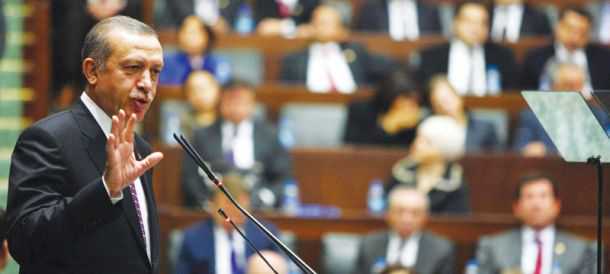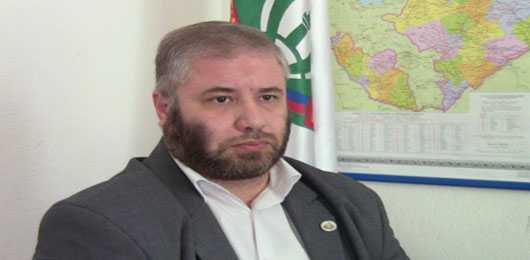
Turkey’s relationship with Europe is at best uneasy but at other times has been fraught with conflict and hostility. Ottoman expansion was stopped at the gates of Vienna in 1683 and in the Mediterranean at the battle of Lepanto in 1571. Turkey’s insistence on maintaining a foothold in Cyprus is also a legacy of the Ottoman occupation. Turkey has since 1952 been a loyal member of NATO as witnessed by Turkey’s contribution to peacekeeping in Bosnia-Herzogovina, Kosovo and Afghanistan.
However, when it came to the stationing of NATO’s early warning radar in Turkey,
Turkey objected to Iran being named as the target and to sharing data with third parties i.e. Israel. Foreign Minister Ahmet Davutoğlu, who is regarded as the architect of Turkey’s present foreign policy, banged home the point by claiming that Turkey was not a NATO partner but “an owner”.
Turkey’s long road to EU membership began with the Ankara Association Agreement in 1963 and was confirmed by the recognition of Turkey as a candidate country at the EU summit in Helsinki in 1999. It is ironic that Prime Minister Bülent Ecevit, who secured Turkey’s candidacy, was also responsible for rejecting the offer of membership together with Greece in 1981.
In its invitation to Turkey the European Council underlined that candidate countries must share the values and objectives of the European Union and, in Turkey’s case, with particular reference to the issue of human rights. This decision led to a flurry of reforms initiated by Ecevit’s coalition in 2000 and, when this fell in 2002, by the present AKP (Justice and Development Party) government. Nevertheless, the EU Commission’s recommendation in October 2004 that Turkey had “sufficiently” fulfilled the political criteria to start accession talks was based more on Turkey’s strategic importance than a realistic assessment of the reform process.
As Naz Masraff from Eurasia Group argues in her PhD thesis, the AKP government made strategic use of EU conditionality to present itself as a Western, reformist, neo-liberal and secular party until it became clear that there was a contradiction between the AKP’s discourse and policies. Nonetheless, in the last couple of years there have been testimonials in the Financial Times, New York Times and EU Observer by various EU foreign ministers to Turkey’s strategic and economic value.
At the end of June 16 EU foreign ministers had termed Turkey “an inspirational example of a secular and democratic country”. But this was countered in a letter from the deputy chairman of the CHP (Republican People’s Party), Faruk Loğoğlu, who stated that their perception of the state of affairs in Turkey was “sadly out of focus”. In Loğoğlu’s view the AKP government pursues an authoritarian policy of incremental Islamization, so that democracy in Turkey exists largely in the abstract.
The overwhelming number of applications to the European Court of Human Rights bears witness to this fact – in June there were 19,373 pending applications – and, as the EU Commission pointed out in its 2012 Progress Report, the increase in violations of freedom of expression raises serious concerns. 71 journalists are still in prison, more than in Iran and China combined, and at a recent meeting a spokesman for the Turkish Freedom for Journalists Platform said the speed of Turkey’s democratization had slowed down.
The Turkish view
The picture would not be complete without the Turkish view of Turkey’s relations with the EU and the West. There has been much talk of Turkey’s ‘axis shift’ and in Foreign Minister Davutoğlu’s own words, “we formulate our policies through a solid and rational judgment of the long-term historical trends and an understanding of where we are situated in the greater trajectory of world history.”
In his Sarajevo speech in 2009 Davutoğlu made it clear that the goal of Turkish foreign policy was to place Turkey at the centre of an Ottoman renaissance and in his Konya speech in April the Foreign Minister laid out the AKP’s mission to create a new Islamic world order. A fortnight later Davutoğlu told the Turkish parliament that Turkey would be “the owner, pioneer and servant” of the new Middle East.
At the AKP’s congress at the end of September Prime Minister Erdoğan declared that the government was following the path of the Ottoman sultans Mehmet II and Selim I but made no mention of Turkey’s European future. Erdogan was also hailed by the leader of Hamas, Khaled Meshaal, as “not just the leader of Turkey but also the leader of the Islamic world”.
The next day at the opening of the Turkish parliament President Abdullah Gül spoke of a country where its writers, thinkers and opinion leaders are able to share their views without fear. Prime Minister Erdoğan’s clear intention is for a new constitution to establish him as executive president in 2014 but the open question is whether Gül is prepared to run against him. According to a recent poll 50.9 percent would prefer Gül and 22.7 percent Erdoğan.
In 1995 Turkey became a full member of the OIC (Organisation of Islamic Cooperation). The Cairo Declaration on Human Rights in Islam limits the expression of opinion to a manner that would not be contrary to the Shari’ah, but Turkey is also a signatory to the International Convention on Civil and Political Rights as well as the European Human Rights Convention.
In a keynote speech at the Istanbul Forum in October Prime Minister Erdoğan’s chief adviser Ibrahim Kalın spoke of “a mental gap” between Islamic and Western notions of what constitutes sacred, religious rights and freedom of expression. The question is whether this gap is too wide to be breached.
About the Author
Robert Ellis is a regular commentator on Turkish affairs in the Danish and international press.






